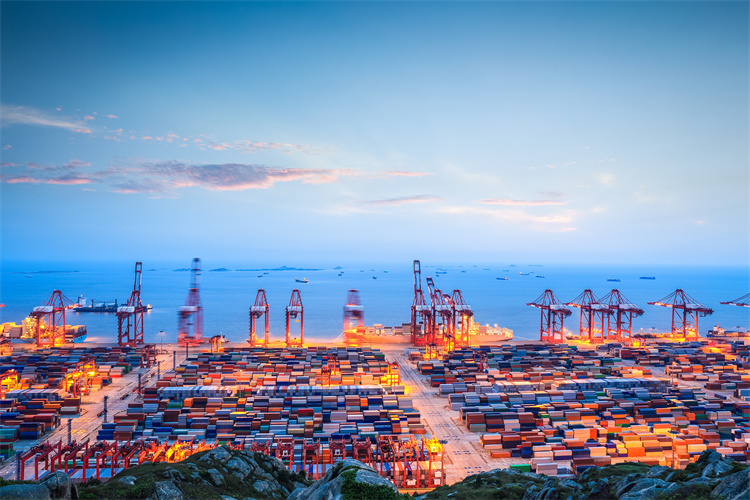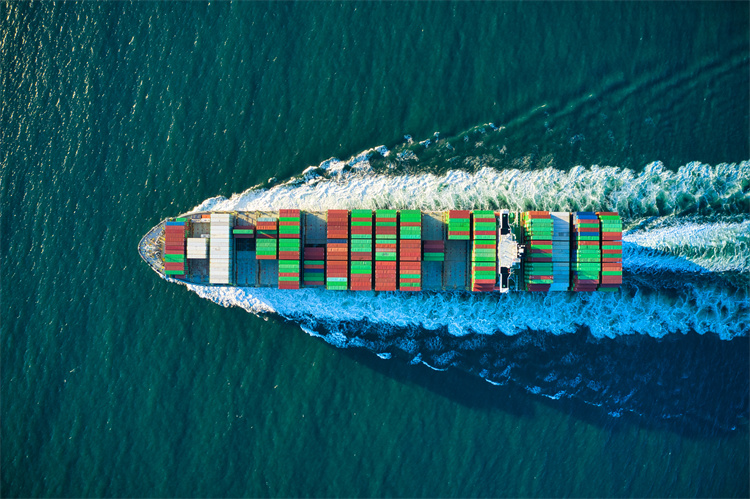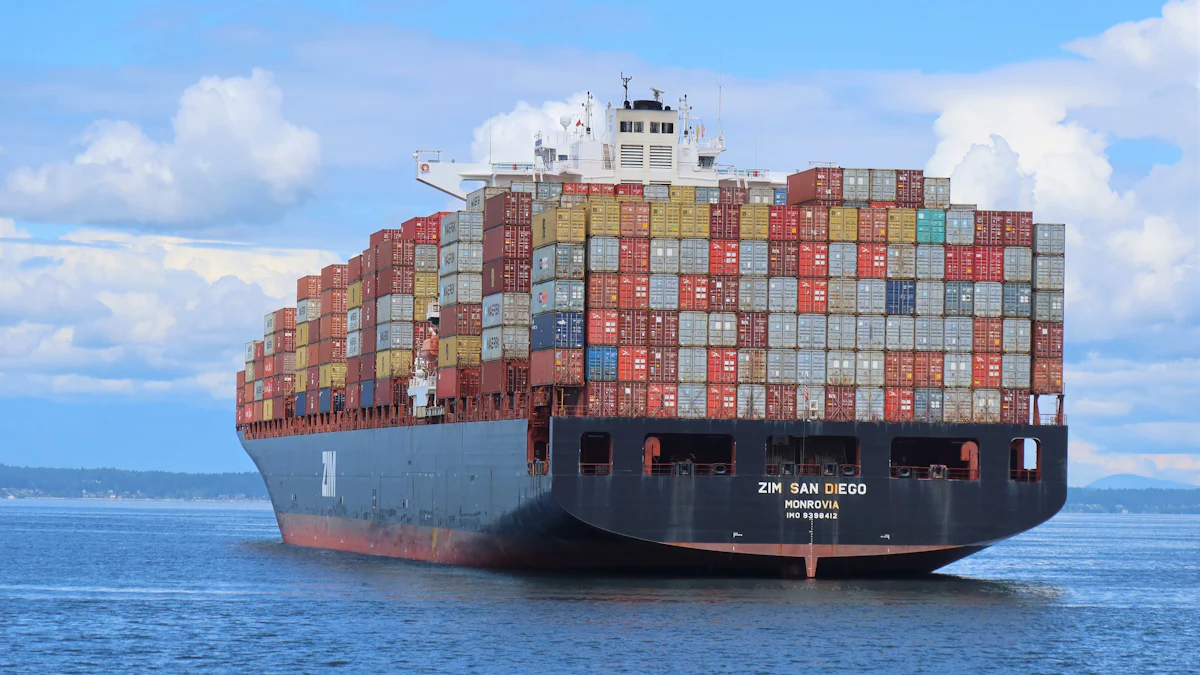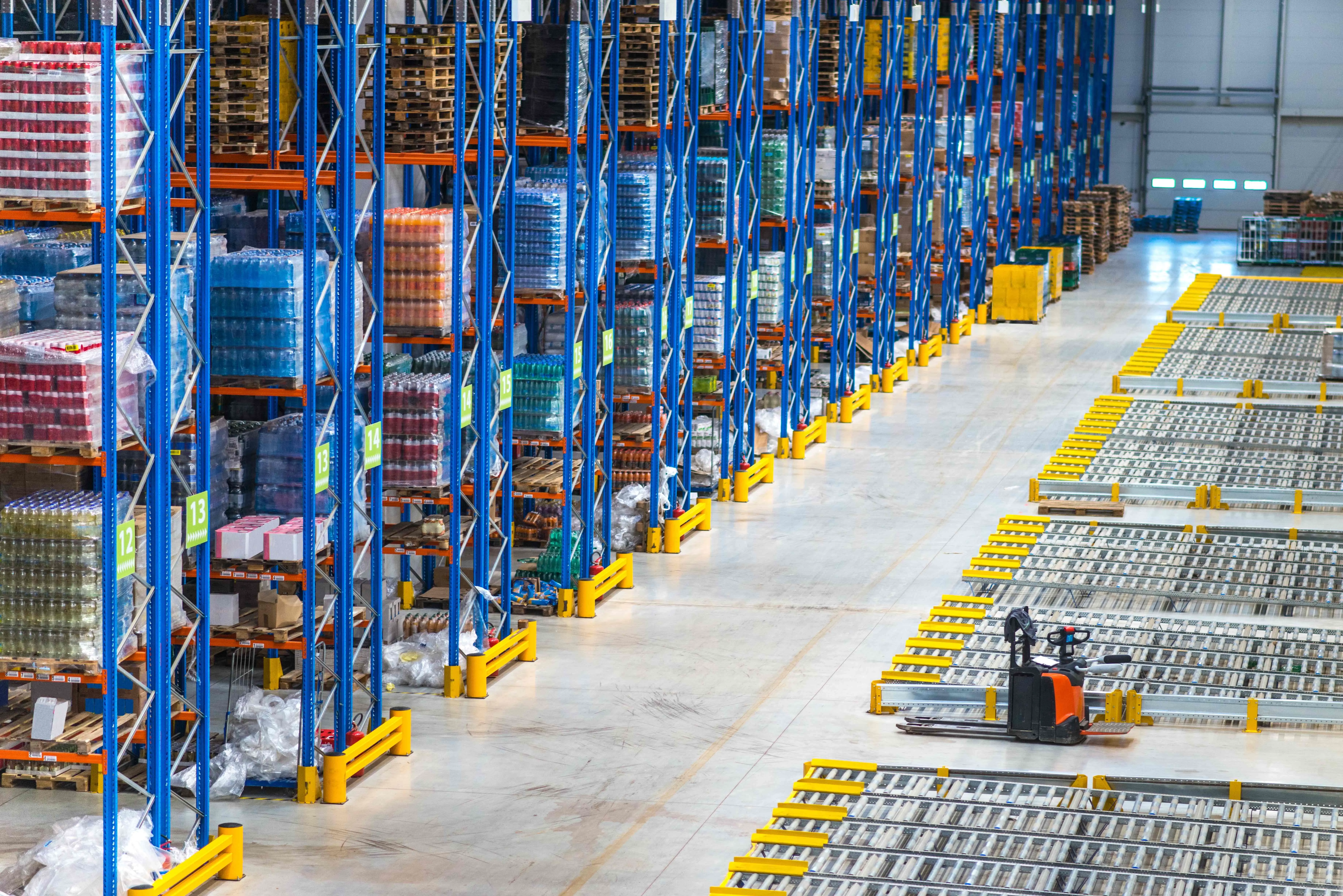Rising from the Waves: Innovations and Challenges in Modern Maritime Logistics

You play a crucial role in the ever-evolving maritime logistics industry, which is integral to the global economy. Over 80% of global trade by volume relies on ocean shipping. This sector is experiencing a transformative wave of innovation, driven by technological advancements and sustainability efforts. Autonomous technologies and big data are reshaping navigation and fuel consumption, leading to more efficient and eco-friendly practices. As you navigate these changes, embracing green shipping solutions and energy-efficient technologies becomes essential. These innovations not only enhance efficiency but also reduce emissions, aligning with global sustainability goals.
Key Takeaways
Embrace digital transformation to enhance operational efficiency and gain real-time insights into your supply chain.
Adopt green shipping solutions and alternative fuels to reduce emissions and align with global sustainability goals.
Leverage automation and robotics to improve safety and efficiency in maritime operations.
Stay informed about economic trends and regulatory changes to proactively manage potential disruptions in shipping.
Collaborate with industry partners to foster innovation and tackle complex challenges in maritime logistics.
Invest in smart technologies and data analytics to optimize resource allocation and streamline processes.
Commit to continuous improvement in sustainability practices to maintain a competitive edge in the evolving maritime industry.
Historical Context and Evolution of Maritime Logistics
Understanding the evolution of maritime logistics provides valuable insights into its current state and future direction. The journey of ocean shipping has been marked by significant milestones that have shaped the industry.
Early Developments in Ocean Shipping
Ocean shipping has a rich history that dates back centuries. From the VII to the XIII centuries, trade routes through Asia, Africa, and Europe laid the foundation for international trade and exploration. These early developments enabled the exchange of goods and ideas across continents, fostering cultural and economic connections. As you delve into this era, you see how maritime routes became the lifelines of global trade, facilitating the movement of spices, textiles, and precious metals.
Technological Innovation Over the Decades
The 20th century witnessed remarkable technological innovation in maritime logistics. The introduction of diesel engines and modern shipbuilding technologies revolutionized ocean shipping. Ships became more efficient and faster, making maritime transportation accessible and cost-effective. The Containerization Revolution in the mid-20th century further transformed sea freight services. By streamlining cargo handling processes and reducing shipping costs, containerization revolutionized the industry. This innovation allowed for the seamless transfer of goods between ships, trains, and trucks, enhancing the efficiency of global trade.
The Role of Globalization in Shaping Maritime Logistics
Globalization has played a pivotal role in shaping maritime logistics. The development of port stations for large ships formed a global connection network, enabling the movement of goods across vast distances. As you explore this aspect, you realize how globalization has increased the demand for efficient and reliable ocean shipping services. The introduction of autonomous ships and smart containers is changing how goods are moved by sea. These advancements make shipping more efficient, safe, and environmentally friendly, aligning with the industry's commitment to sustainability.
Key Innovations in Maritime Logistics

The maritime industry is undergoing a significant transformation, driven by innovative maritime solutions that enhance efficiency and reduce environmental impact. As you explore these advancements, you'll discover how digital transformation, automation, and sustainable practices are reshaping sea freight services.
Digitalization and Data Analytics
Digital transformation plays a crucial role in modernizing maritime logistics. By integrating digital tools and data analytics, you can significantly improve operational efficiency.
Impact on Operational Efficiency
Digitalization streamlines processes and optimizes resource allocation. You can leverage data analytics to monitor shipping routes, predict maintenance needs, and enhance decision-making. This leads to reduced transit times and lower operational costs, ultimately boosting efficiency.
Enhancements in Supply Chain Visibility
With digital tools, you gain real-time insights into the supply chain. This visibility allows you to track shipments, manage inventory, and respond swiftly to disruptions. Enhanced visibility ensures that sea freight services remain reliable and efficient.
Automation and Robotics
Automation and robotics are transforming the shipping industry. These technologies introduce innovative maritime solutions that improve safety and efficiency.
Autonomous Vessels and Drones
Autonomous ships represent a groundbreaking innovation in maritime logistics. These vessels navigate without human intervention, reducing the risk of human error and enhancing safety. Drones also play a role in monitoring and inspecting ships, further improving efficiency.
Port Automation and Smart Technologies
Ports are becoming smarter with automation. Automated cranes and vehicles streamline cargo handling, reducing turnaround times. Smart technologies optimize port operations, ensuring that sea freight services remain efficient and responsive to global trade demands.
Sustainable Practices and Green Shipping
Sustainability is at the forefront of maritime logistics. You can adopt green shipping solutions to minimize environmental impact and promote eco-friendly practices.
Alternative Fuels and Energy Efficiency
The shipping industry is shifting towards cleaner energy sources. By using alternative fuels, you reduce emissions and contribute to a greener environment. Energy-efficient technologies also play a role in minimizing fuel consumption and enhancing efficiency.
Waste Reduction and Recycling Initiatives
Sustainable practices include waste reduction and recycling. By implementing these initiatives, you can decrease the environmental impact of shipping operations. These efforts align with global sustainability goals and promote a more responsible approach to maritime logistics.
JUSDA's Role in Technological Innovation
JUSDA stands at the forefront of technological innovation in maritime logistics. You can see how JUSDA leverages cutting-edge technologies to enhance efficiency and sustainability in the industry. By integrating digitalization and automation, JUSDA optimizes resource allocation and streamlines processes across the supply chain. This approach not only reduces operational costs but also minimizes environmental impact, aligning with global sustainability goals.
China-Europe Express Rail as a Case Study
The China-Europe Express Rail serves as a prime example of JUSDA's innovative solutions. This service connects China and Europe through a reliable railway network, offering a faster alternative to sea freight and a more cost-effective option compared to air freight. You benefit from a balanced solution between speed and cost, with delivery times ranging from 15 to 20 days. This efficiency makes it ideal for transporting goods like electronics, clothing, and medical supplies.
"The China-Europe Express Rail bridges the gap between speed and cost in international logistics, enabling businesses to transport goods efficiently across continents."
JUSDA's extensive network ensures smooth customs operations and resource alignment, reducing the risk of delays. The service also expands to include sea-rail intermodal solutions, enhancing connectivity for goods from Japan, South Korea, and Taiwan. By adopting this innovative approach, you can optimize your supply chain logistics and improve operational efficiency.
Key Features of the China-Europe Express Rail:
Faster delivery times compared to sea freight.
Cost-effective alternative to air freight.
Reliable transportation for a variety of goods.
Seamless customs operations and resource alignment.
The China-Europe Express Rail exemplifies how JUSDA's commitment to technological innovation transforms maritime logistics. By embracing these advancements, you contribute to a more connected and sustainable global trade network.
Challenges Facing Modern Maritime Logistics

In the dynamic world of maritime logistics, you encounter numerous challenges and opportunities that shape the industry's landscape. Understanding these challenges helps you navigate the complexities of global trade and develop strategies to overcome them.
Economic Uncertainties and Trade Disruptions
Economic uncertainties pose significant challenges to maritime operations. Fluctuating global markets and trade tensions can disrupt shipping routes and schedules. You must stay informed about economic trends to anticipate potential disruptions. By leveraging real-time tracking systems, you can monitor shipments and adjust plans accordingly. This proactive approach minimizes delays and ensures that goods reach their destinations on time.
Environmental Concerns and Regulatory Pressures
Environmental sustainability is a critical focus in maritime logistics. You face increasing pressure to reduce emissions and comply with environmental regulations. Adopting green shipping practices becomes essential. By using alternative fuels and energy-efficient technologies, you contribute to a cleaner environment. These efforts align with global sustainability goals and enhance your company's reputation as an environmentally responsible entity.
Infrastructure Constraints and Port Congestion
Infrastructure constraints and port congestion present ongoing challenges in maritime logistics. Limited port capacity and outdated facilities can lead to delays and increased costs. You need to explore innovative solutions to optimize port operations. Implementing smart technologies and automation can streamline cargo handling and reduce turnaround times. By enhancing efficiency, you ensure that maritime operations remain competitive and responsive to global trade demands.
Company Information:
JUSDA employs cutting-edge digital platforms to enhance transparency and efficiency across its global supply chain network.
Real-time tracking systems provide stakeholders with visibility into every stage of the supply chain.
JUSDA's commitment to technological advancement positions it as a leader in logistics innovation.
Future Trends and Potential Solutions
The future of sea freight is evolving rapidly, driven by technological advancements and the need for sustainable practices. As you navigate this dynamic landscape, understanding future trends and potential solutions becomes crucial.
Collaborative Efforts and Industry Partnerships
Collaboration stands at the heart of future maritime logistics. By forming industry partnerships, you can enhance connectivity across global supply chains. These partnerships foster innovation and efficiency, allowing you to tackle complex challenges collectively. For instance, joint ventures between shipping companies and technology firms can lead to the development of advanced maritime technologies. These collaborations ensure that you stay ahead in a competitive market, providing seamless and reliable services.
Technological Advancements and Innovation
Technological advancements are reshaping the future of sea freight. Smart containers equipped with IoT technology offer real-time updates on cargo status and condition. This innovation transforms how you track and monitor shipments worldwide, enhancing connectivity and operational efficiency. Additionally, the integration of big data and AI in maritime technologies allows for predictive maintenance and optimized routing. These tools help you reduce costs and improve service delivery, ensuring that your operations remain competitive and responsive to global trade demands.
Policy and Regulatory Developments
Policy and regulatory developments play a pivotal role in shaping the maritime industry. As environmental concerns grow, you must comply with stricter regulations aimed at reducing carbon emissions. Investing in sustainable technologies becomes essential to meet these requirements. Shipping companies are developing low-emission vessels to minimize environmental impact and ensure sustainability for the future. By staying informed about policy changes, you can adapt your strategies and maintain compliance, positioning your company as a leader in environmentally responsible practices.
"The global shipping industry is expected to continue its ascending course, despite issues with accessibility, manpower, and the current ecopolitical turbulence."
JUSDA's Commitment to Sustainability
In the rapidly evolving maritime logistics industry, sustainability has become a cornerstone of future growth and innovation. As you navigate this landscape, JUSDA stands out with its unwavering commitment to sustainable practices. This dedication not only aligns with global environmental goals but also enhances operational efficiency and competitiveness.
1. Embracing Green Technologies
JUSDA actively invests in green technologies to reduce the environmental impact of its operations. By adopting alternative fuels and energy-efficient systems, you can significantly lower emissions. This approach not only contributes to a cleaner environment but also positions your company as a leader in eco-friendly logistics solutions.
2. Innovative Waste Management
Waste reduction and recycling are integral to JUSDA's sustainability strategy. By implementing comprehensive waste management initiatives, you can minimize the ecological footprint of shipping activities. These efforts ensure that your operations align with global sustainability standards, promoting a responsible approach to maritime logistics.
3. Digital Transformation for Efficiency
Digitalization plays a crucial role in JUSDA's sustainability efforts. By leveraging digital tools and data analytics, you can optimize resource allocation and streamline processes. This not only reduces operational costs but also enhances supply chain visibility, ensuring that your logistics operations remain efficient and responsive to global trade demands.
"The digitization of the delivery aspect results in new business logic, enhancing economic and social value creation."
4. Collaborative Industry Partnerships
JUSDA believes in the power of collaboration to drive sustainable change. By forming strategic partnerships with industry leaders, you can foster innovation and develop advanced maritime technologies. These collaborations enable you to tackle complex challenges collectively, ensuring that your operations remain competitive and environmentally responsible.
5. Commitment to Continuous Improvement
JUSDA's commitment to sustainability is an ongoing journey. By continuously exploring new technologies and practices, you can stay ahead of industry trends and regulatory requirements. This proactive approach ensures that your company remains at the forefront of sustainable maritime logistics, contributing to a more connected and eco-friendly global trade network.

JUSDA Solutions
To provide you with professional solutions and quotations.
Throughout this exploration of the maritime industry, you have seen how innovation and sustainability drive its evolution. Key advancements like digitalization, automation, and green shipping practices are reshaping the landscape. As you look to the future, balancing these innovations with the challenges of economic uncertainties and regulatory pressures becomes crucial. JUSDA's contributions stand out, showcasing a commitment to technological advancement and sustainability. By embracing these changes, you can navigate the complexities of global trade, ensuring a more efficient and interconnected maritime industry.
See Also
Transforming Supply Chains: Innovations Shaping Logistics Today
Future Logistics: How AI Is Changing Supply Chains
Exploring Future Logistics: Breakthroughs in Technology
